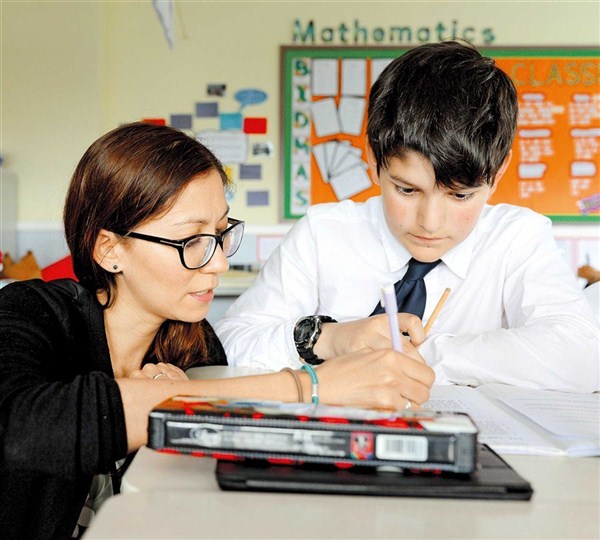
Shanghai Today
Effective dialogue goes both ways - October 09, 2016
十条秘诀,让“学校-家庭”双向沟通更高效!

HOME-SCHOOL communication is one of the key things that a school needs to get right with their parents, and it is often one of the top issues mentioned in school surveys or parent questionnaires, for both positive and negative reasons.
Is there too much communication that it is overwhelming? Is there not enough and parents do not know what is going on at school? Is information distributed through a variety of means and are parents aware of these? Most feedback regarding communication tends to revert back to the school and what it is doing to improve or rectify communication. However, it is important to bear in mind that in order for communication to work effectively, it is a two-way process between home and school. The communication we, as teachers, receive from home is equally as important, and can often have an impact on your child's experiences at school. After conversations with our teachers here at NAIS Pudong, we thought of 10 top tips which can help to make communication between home and school a productive process.
Always keep your child's school up to date with important telephone numbers and email addresses. This is particularly important if we need to contact you in the case of an emergency and generally when sending communication home.
Always communicate with the school as early as possible if your child will be absent and inform us of any illnesses that we should be aware of.
Complete parental permission forms for visits/vaccinations/events prior to it taking place, as receiving this information late may mean your child won't be able to participate.
Be honest with the school about any learning needs your child may have. This will ensure that your child's class teacher can provide the most appropriate learning activities that suit your child's needs.
Communicate any changes to a child's normal routine to the relevant adults.
Let us know of any changes to home life. We don't want to pry into your personal life, but often changes at home can affect a child’s emotional and social behavior which displays itself in a variety of ways.
Give us feedback. This could be about your child's homework, project work or exam revision.
Pick the right person to communicate with. Often this is your child's class or form tutor, but you may need to contact head of department or member of Senior Leadership if the issue is serious.
Get involved! Parents often know more about what happens at school when they get involved with school life. Ask your child's teacher if you can be a volunteer reader, help on school trips or join the Parent Association or Community Group at your child's school.
Tell us when things are going well. We're all familiar with the phrase “no news is good news,” but just like our students, adults also want to know when they have done a good job and what your child is enjoying about school.
Is there too much communication that it is overwhelming? Is there not enough and parents do not know what is going on at school? Is information distributed through a variety of means and are parents aware of these? Most feedback regarding communication tends to revert back to the school and what it is doing to improve or rectify communication. However, it is important to bear in mind that in order for communication to work effectively, it is a two-way process between home and school. The communication we, as teachers, receive from home is equally as important, and can often have an impact on your child's experiences at school. After conversations with our teachers here at NAIS Pudong, we thought of 10 top tips which can help to make communication between home and school a productive process.
Always keep your child's school up to date with important telephone numbers and email addresses. This is particularly important if we need to contact you in the case of an emergency and generally when sending communication home.
Always communicate with the school as early as possible if your child will be absent and inform us of any illnesses that we should be aware of.
Complete parental permission forms for visits/vaccinations/events prior to it taking place, as receiving this information late may mean your child won't be able to participate.
Be honest with the school about any learning needs your child may have. This will ensure that your child's class teacher can provide the most appropriate learning activities that suit your child's needs.
Communicate any changes to a child's normal routine to the relevant adults.
Let us know of any changes to home life. We don't want to pry into your personal life, but often changes at home can affect a child’s emotional and social behavior which displays itself in a variety of ways.
Give us feedback. This could be about your child's homework, project work or exam revision.
Pick the right person to communicate with. Often this is your child's class or form tutor, but you may need to contact head of department or member of Senior Leadership if the issue is serious.
Get involved! Parents often know more about what happens at school when they get involved with school life. Ask your child's teacher if you can be a volunteer reader, help on school trips or join the Parent Association or Community Group at your child's school.
Tell us when things are going well. We're all familiar with the phrase “no news is good news,” but just like our students, adults also want to know when they have done a good job and what your child is enjoying about school.


